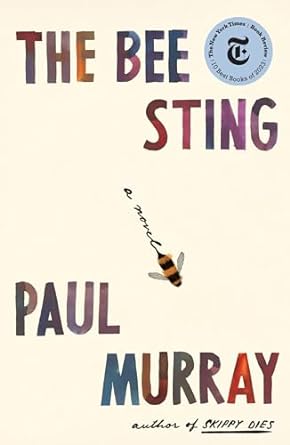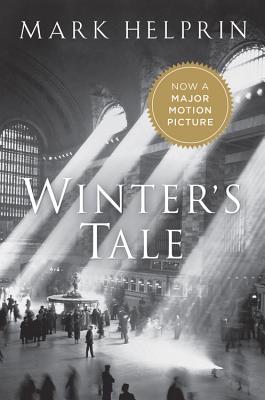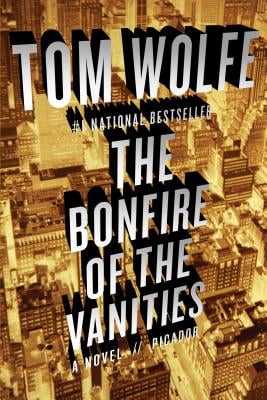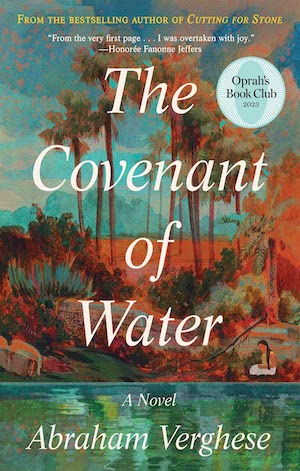While chatting with friends recently about the books we’d read in 2024, someone asked, “What is your all-time favorite book?” For a few in the group, the question was a tough one because there are so many great ones. For me the answer was easy. Middlemarch has been my favorite book for decades. When I named it, though, some in the group groaned. “Too long!” said more than one person.
“Why does that matter?” I asked. “You’re always reading something. What difference does it make if you’re reading many words from one book or many words from many books?”
I get bored with the same book day after day,” said one friend. Another said big books weigh too much. Still another admitted, “A big book makes my book count lower. It only counts as one book no matter how many pages it has.” We all laughed and moved on, but I’m here to advocate for big, long books that allow us to escape to worlds where we lose ourselves in stories that take a while to tell. Each book on the list below is worth its weight in words.
Middlemarch by George Eliot
First up, what else but Middlemarch by George Eliot? I’ve read it three times and remembered it as being about 500 pages long, but the Penguin Classic edition I own is actually 800 pages — that fly by! The setting may be provincial late-Regency England, but the plot and characters are timeless and the problems they encounter (involving money, marriage, career, health, societal change, scandals and scoundrels) are the same ones we face.
Perhaps the most famous mismatch in English literature, the disastrous marriage of Dorothea Brooke to Mr. Casaubon, is realistically painful because all the misunderstandings that cause its unraveling are described as they would occur in real life, growing more frequent and intense over time, until there is nothing left except misunderstanding. Eliot shows the same patience with every character’s narrative, each one essential to the interwoven, overall story of the book, through a process Eliot called “a slow preparation of effects”.
Virginia Wolf deemed Middlemarch “one of the few English novels written for grown-ups,” because, perhaps, the world it created from 200 years ago still captures what life demands of all of us. One bit of wisdom from the book: “We mortals, men and women, devour many a disappointment between breakfast and dinner-time; keep back the tears and look a little pale about the lips, and in answer to inquiries say, ‘Oh, nothing!’ Pride helps; and pride is not a bad thing when it only urges us to hide our hurts — not to hurt others.”
Worth it: the book is the sum of life, captured in a mere 800 pages.

The Bee Sting by Paul Murray
The Bee Sting by Paul Murray is a best-selling, Booker-Prize-nominated novel that clocks in at only 650 pages. I also remembered this novel as being shorter because I tore through it to find out what would happen next. Told from four points of view: Dickie, a failing car dealer who becomes a bunker-building survivalist; his wife Imelda who married the wrong brother; their daughter Cass who is busy annihilating her future; and their son PJ who trusts the wrong people and endures an experience so terrible it traumatizes him for life.
A page-turner, the book is also beautifully written, and the precise length it needs to be. As a reader, I often run out of patience when characters refuse to learn from their disasters and seem hell-bent on ruining themselves, but this Irish family is so empathetically drawn that I kept rooting for them despite their poor judgment. The ending is intentionally ambiguous and has given rise to many online theories about what really happened. I’ve reread the final pages several times, along with many online posts by other readers, and am still not 100% sure my interpretation is correct. But it is one I can live with, and as far as I know not one the author has quashed, so for now I’m sticking to it. The book isn’t all that long, though, so maybe I’ll reread and see how it strikes me the second time around.
Worth it: for its compelling story and the opportunity to join many conversations about what did or did not happen at the end.

Winter’s Tale by Mark Helprin
Another long book I could easily reread is Winter’s Tale by Mark Helprin. It is impossible to summarize the plot of this book without leaving out vast swaths of it. Over the course of its 673 pages things happen! They are magical things, beautiful things, improbable things, hopeful things. The plot takes off when Peter, an orphan who has survived to middle age by becoming part of a gang in Belle Epoque New York City, tries to free himself from the gang’s malevolent clutches and strikes out on his own.
While burglarizing a mansion he thinks is empty, he meets and falls in love with a dying young woman, the daughter of the wealthy man who owns the house. Loving her and wanting to save her leads to wild adventures in a semi-supernatural world that includes a magical white horse, sudden time jumps, a quest for justice, death, and rebirth.
For a time, Peter makes his home behind the stars in the ceiling of Grand Central Station and I must admit, almost forty years after I read the book, I look up every time I’m in the building and wonder if he might be living there even now. The city Halprin imagines in Winter’s Tale is illogical and inexplicable in terms of ordinary reality. But, as one character says, “I didn’t teach you to think that everything must be within our control or understanding. Did I? For, if I did, I was wrong. If you won’t take a chance, then the powers you refuse because you cannot explain them, will, as they say, make a monkey out of you.”
Worth it: for entry into a fantastical world we feel no need to control or fully understand.

The Bonfire of the Vanities by Tom Wolfe
Tom Wolfe depicts another iteration of New York City in the novel that captured the 1980s zeitgeist, The Bonfire of the Vanities. I wonder if the excess this book depicts might seem too preposterous to a 2025 reader, but in fact the plot is based on a number of actual events that spun out of control in that gilded decade of greed and grifting. Not that greed and grifting have departed from the scene, but the particular type of frenzied acquisition the book captures is no longer so overtly on display.
Sherman McCoy, a young, ambitious investment banker and wannabe Master of the Universe, is involved in a freak accident in the Bronx and has to run for his life, quite literally at that moment and figuratively for the rest of the book as everyone from the local prosecutor to his expensive mistress want their piece of this vain, ambitious jerk. When his arrogance and dishonesty begin to catch up with him, Sherman consoles himself for his sins, “A Master of the Universe couldn’t be a saint, after all … It was unavoidable. For Christ’s sake, you can’t dodge snowflakes, and this was a blizzard! He had merely been caught at it, that was all, or halfway caught at it. It meant nothing. It had no moral dimension. It was nothing more than getting soaking wet.”
The book is a wild ride, funny and exhilarating. It’s also a morality tale about the vanities that consume Sherman, the other characters in the book, and the entire era. At 659 pages the book is another relative lightweight.
Worth it: to experience the craziness of a unique decade. (Read it before you stream the 1990 movie that the book by far surpasses).

The Covenant of Water by Abraham Verghese
A book that will provide a welcome escape from winter over several long nights is Abraham Verghese’s The Covenant of Water. Set in Kerala, India in the years from 1900 to 1977, the book tells the story of three generations of a family cursed by many things, but most particularly by a drowning in every generation. Their efforts to protect their descendants from most forms of water is only one of this family’s hardships and hard-won successes, however.
Because it is set in India we expect monsoons, arranged marriages, poverty, and disease along with the warmth, color, drama, and exuberance of this ancient culture. We might not expect so much humor contained in a tale of incredible loss. The story is a complex tale of love, loss, and forgiveness with tentacles reaching over time in all directions. More than once I thought “What does this have to do with anything?” But by the final page, 734, Verghese had tied it all together in a brilliant, satisfying ending.
Worth it: for, as the matriarch of the family, observes, “A good story goes beyond what a forgiving God cares to do: it reconciles families and unburdens them of secrets whose bond is stronger than blood.”
Download them as an ebook, listen to them as an audiobook, read from a paperback torn into sections, or consider hefting the hardcover a bonus opportunity to strengthen your biceps, but add these big books to your reading list. You may even garner praise from a stranger, as I did. While reading Covenant at the doctor’s office another patient gestured toward the book and said to me, “Oh wow. You are a READER.” I am. So are you!
This post was originally published on here







